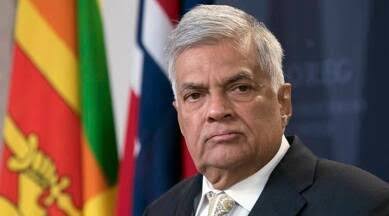Acting President Ranil Wickremesinghe was elected as the new president of Sri Lanka in an election held in parliament on Wednesday, July 20.
After winning the election, Wickremesinghe addressed the parliament.
The newly elected president called on all legislators including the opposition parliamentarians to unite and work together with him to lead Sri Lanka out of the current economic crisis.
Read Also: MKO Abiola: Family Of Late Politician Debunks Drug Ties After Hundeyin’s Report
Wickremesinghe got 134 votes from parliamentarians in a secret ballot that took place in parliament.
Out of 225 parliamentarians, 223 voted in the ballot and there were four invalid votes.
A parliamentarian of the Sri Lanka Podujana Peramuna Dullas Alahapperuma, and National People’s Power leader Anura Kumara Dissanayake got 82 votes and three votes, respectively.
Gotabaya Rajapaksa resigned from the post of president last week following massive protests amid severe economic crisis in the Sri Lanka.
Following his resignation, Speaker of Parliament Mahinda Yapa Abeywardena announced that Wickremesinghe, who was the prime minister then, was appointed acting president.
It remains to be seen whom Wickremesinghe would nominate as prime minister, where a compromise could be made with the opposition, the expert said.
Wickremesinghe has also recently negotiated with the IMF over a bailout Sri Lanka needs urgently, and enjoys a working relationship with key donor countries.
Appeal For Caution
On Monday, in his role as acting president, Wickremesinghe declared a state of emergency that gave him broad authority to act in the interest of public security and order. Authorities can carry out searches and detain people, and Wickremesinghe can also change or suspend any law.
The political turmoil in Sri Lanka has worsened the economic crisis. But Wickremesinghe said Monday that negotiations with the IMF were nearing a conclusion, while talks on help from other countries had also progressed. He also said that the government has taken steps to resolve shortages of fuel and cooking gas.
There has been no comment from the IMF on Wickremesinghe’s assessment of the bailout talks.
As prime minister, Wickremesinghe delivered weekly addresses in Parliament cautioning that the path out of the crisis would be difficult, while also pledging to overhaul a government that increasingly has concentrated power under the presidency.
The vote, shown on national television, was a decorous, solemn affair. As the results were announced, the lawmakers thumped their tables in support of their own candidates.
Presidents in Sri Lanka are normally elected by the public. The responsibility falls on Parliament only if the office of the president becomes vacant before a term officially ends.
That has happened only once before in Sri Lanka when then-Prime Minister Dingiri Banda Wijetunga was chosen by Parliament uncontested in 1993 after former President Ranasinghe Premadasa, father of the current opposition leader, was assassinated.

